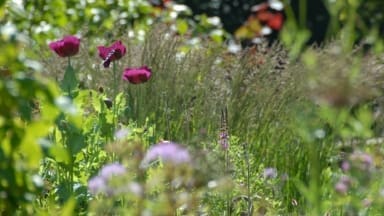
The UK government’s mandatory Biodiversity Net Gain (BNG) requires new developments to achieve at least 10% net gain in biodiversity, including habitats, hedgerows and watercourses. However, the measure of success – the BNG 4.0 metric, does not account for gardens, nor the estimated 400,000 cultivated plant varieties thought to be found within them. According to the Royal Horticultural Society (RHS), these are currently being overlooked as important tool in tackling environmental and social problems.
The charity stipulates that the provision of gardens should be central to UK housebuilding targets. More than four fifths of the UK population live in urban areas, often with limited access to nature. With this in mind, ensuring that domestic and shared gardens are created and maintained in new developments will be fundamental in building resilient communities.
“It is time for a collaborative and coordinated strategy that puts gardens and cultivated green spaces at the heart of our communities,” explains Professor Alistair Griffiths, RHS Director of Science and Collections. “With plans for a once in a generation housebuilding spree, it is time for a collaborative and coordinated strategy that puts gardens and cultivated green spaces at the heart of our communities, leveraging their numerous benefits for many more people and providing space for active and not simply passive engagement with nature.”
Calling on the government currently debating at the Labour Conference, the RHS highlights that gardens are critical to the environment, biodiversity, and human health and wellbeing. The charity is therefore calling on the government to review the BNG 4.0 metric, updated planning guidelines to require cultivated landscapes, and garden masterplans for urban areas. Crucially, say the RHS, these gardens or planted spaces might take on new and creative forms.
“1.5 million new homes should translate to 1.5 new garden access opportunities, implemented via an effective and collaborative strategy for the creation of domestic gardens and the creation and maintenance of shared garden spaces”, states the RHS.
Gardens and plants offer an effective and low-cost nature-based solution for climate adaptation and mitigation – such as the slowing the flow of rainwater to reduce flooding, cooling to reduce temperatures in urban areas, capturing pollution to improve air quality and human health and to provide habitats for wildlife. Urban gardens are invaluable to pollinators – the plight of which was recently highlighted by Butterfly Conservation where butterfly numbers reached a record low.

